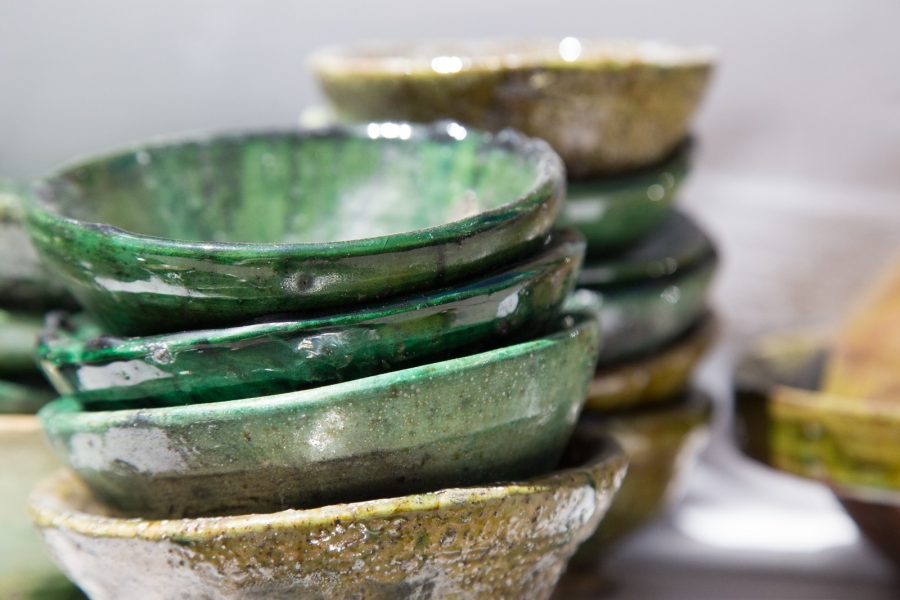This was in Switzerland, but it could have been in Portugal or anywhere else. An old woman went into a self-service restaurant, ordered a bowl of broth, paid and sat down at one of the free tables. At this, she saw that she had forgotten the bread roll, went to get a carcass and returned to her place.
Surprise! In front of the steaming bowl now sat a coloured man, a black man, eating quietly.
“This is too much! -thought the good woman, “but I’m not going to get through. Said and done. She sat down next to the stranger, broke the crust of the bread into small pieces, dipped them into the pot in front of the man and put the spoon inside. The black man, complacent, smiled without saying anything. They took a spoonful each, alternately, until they had used up the soup; then the coloured man got up, went over to the bench and soon returned, with a juicy plate of spaghetti and…. with two forks. They both ate from the same plate, in silence, taking turns.
At the end, “Hasta la vista! -salutes the man-, with the satisfied air of a scout who has practised a good deed, and leaves. “So long! -replies the woman, still scarcely recovered from her fright and looking at him with her eyes. Then she looks for the bag that was hanging on the back of the chair, and… holy God! the bag, where is it… then… that black man… She was going to shout: “Grab it, he’s a thief!” but then she sees the bag hanging on a chair, two tables behind where she had been sitting. And on top of the table, a tray with her bowl of broth, already cold.
After all, it was not the African who ate from her soup, it was she who, by mistakenly changing the table, ate at the good man’s expense.
This real-life case reminded me of a number of things. The famous international debt, for example. According to the creditor countries, the Third World owes them tons of dollars. However, one wonders whether, under the conditions under which the loans were granted, the debts were not already paid in duplicate and triplicate. Are the poor countries swindlers or are the rich powers not leeches first, pretending to turn the “foreign debt” into “eternal debt”? Are the poor nations eating from the bowl of the rich countries or are the great ladies not eating and drinking at the expense of the poorest of the poor?
And immigration comes to mind: why is it that we only talk about the problems and no wonder that our country can offer work to foreigners, even though many Portuguese also have to look for work abroad?
Immigration is not a problem. It is rather an opportunity for everyone. Africans, Romanians, Brazilians or Moldovans make them more prosperous; they work, consume and make up for our demographic deficit. Are they living at our expense or are we not also living at their expense?
Moreover – and this fact is not always considered – emigration (which takes us out of our own country) and immigration (which brings other people here) work like movement in water. Stagnant water does not remain drinkable, nor does it provide an environment conducive to the development of the marvellous aquatic flora and fauna. What is not aerated rots. A people closed in on itself becomes corrupt. Emigration and immigration ensure the physical, mental and spiritual health of any nation.
All or almost all of us, inhabitants of the end of the Asian continent, which we call “Europe”, are descendants of more or less remote immigrants. Our country, without going any further, is the result of many peoples who have come from abroad and mixed with the people here over the centuries. Once they often came as violent invasions, with iron and fire. Today, by contrast, they come peacefully, ready to earn the bread and peace they need. These adventurous, self-sacrificing and courageous men and women bring the new lifeblood needed by the old, worn-out and comfortable trunk.
It seems to me more sensible, then, that we should welcome them warmly and share with them the restaurant or school table, the church or garden bench, the supermarket or stadium queue, the hospital or nursing home bed.
After all, what is the World but a common home, made of land and sea, of rivers and mountains, of tropics and polar regions, of arable land and forests, inhabited by all kinds of living beings, breathing the same air, living together in solidarity? To turn history into a ring of fratricidal struggles is nothing but madness. Men and women, regardless of colour and ethnicity, will be wise and happy to the extent that they treat each other as neighbours and acquaintances, as friends and brothers and sisters.
For, ultimately, between the Swiss Madame and the black African, the difference will not be so great. She eats, laughs and talks like him. He has a heart that beats like hers. Together, both stand to gain. They see what humanity is capable of.
The word “foreigner”, meaning “stranger”, is to be crossed out of our dictionary. There are no strangers. The least we can do is share a bowl of broth.
Abílio Pina Ribeiro, cmf
(PHOTO: Karim Manjra)






